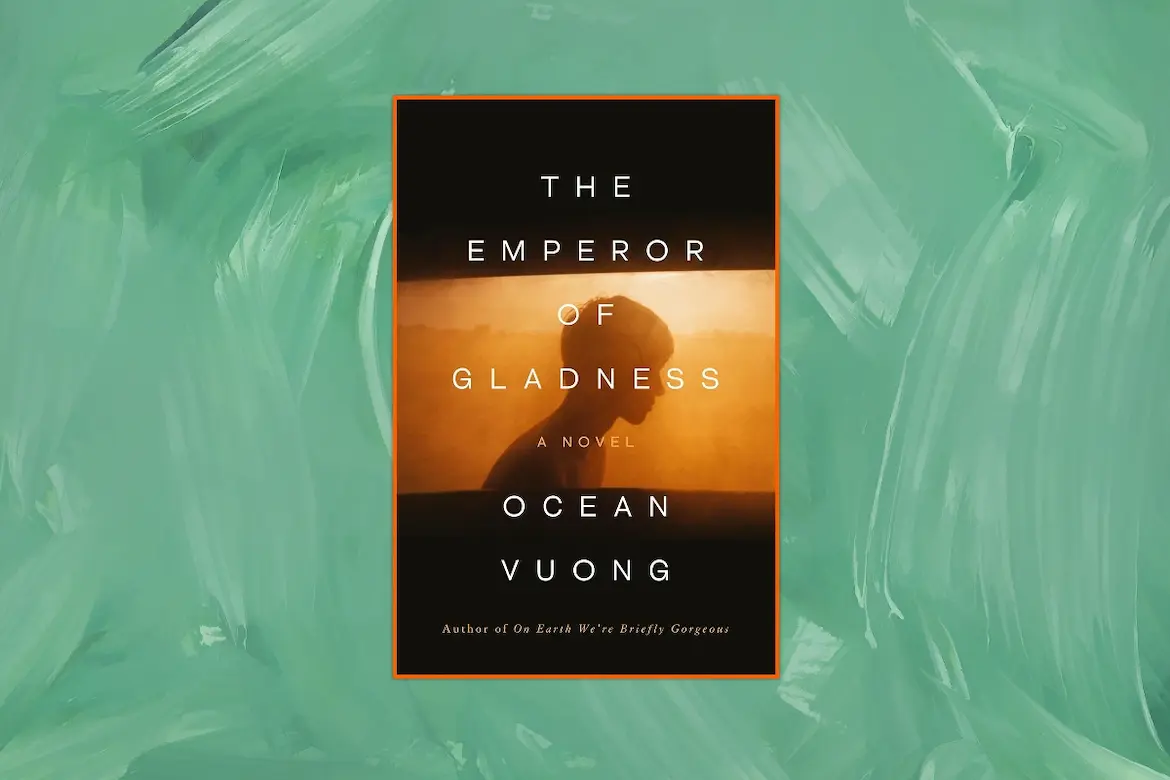Ocean Vuong
Penguin/Random House
Otago Daily Times, August 30th 2025
The child of Vietnamese refugees and the first in his family to learn to read and write, Ocean Vuong’s life exemplifies the American Dream. It is not a position he takes for granted, resting as it does not on illusory ideals of equality and freedom but acts of grace and chance, and The Emperor of Gladness is the story of what might have been.
Set in East Gladness, Connecticut “where high school kids, having nowhere to go…look down one night to find a baby in their arms and realise they are thirtysomething and the Walmart hasn’t changed except for its logo, brighter now, lending a bluish glow to their time-gaunt faces”, the novel opens with 19-year-old Hai, newly discharged from rehab, standing on a railway bridge contemplating suicide. His plans are interrupted, however, by Grazina, an elderly Lithuanian widow who offers him a place get himself together in exchange for help around her slowly disintegrating home.
Over the course of the following year Hai finds temporary reprieve from his past as both Grazina’s live in-carer, Labas (Lithuanian for ‘Hello’, the transliterated name she bestowed on him at their first meeting), and Sergeant Pepper, who ushers her through the nights she slips back into her childhood in German-occupied Europe.
Additional stability comes from a job at HomeMarket, a franchise diner marketed as “the taste of the holidays without the pain of holidays.” Here he finds a new family, and an identity “manifested only by his functional existence on the timecard…contained an eternal present.”
The novel’s humanity leaps from the page through both through its characters, who represent the statis of a Middle-America looked down on and scorned by both sides of the political spectrum, and the compassion with which Vuong handles them. It is a motley crew: Hai, an addict since middle school when the local ‘Candy Man’ upsold him from Jolly Ranchers to opioids; Grazina, slowly and inexorable slipping into dementia; Hai’s autistic, civil-war obsessed cousin Sony; Russia, working two jobs to pay for his sister’s rehab; Maureen, with her bad knees, conspiracy theories, and a crippling medical debt from a son lost to leukaemia a decade earlier; Wayne, who works the rotisserie in honour of his pitmaster father and grandfather; and BJ, Manager, mater familias, and aspiring amateur wrestler.
Rather than mock or romanticise their lives, Vuong writes with a clear-eyed honesty that eschews the ersatz satisfaction of the traditional redemptive arc. The Emperor of Gladness recognises both the bleakness of the society it depicts and the solidarity that arises from ‘kindness without hope’, and the small, shared pleasures afforded by Corporate America. HomeMarket’s Mac’n’Cheese, mashed potatoes, and creamed spinach may be industrially produced and thawed on demand, the cornbread’s to-die-for taste due to the cake batter with which BJ adulterates it, but it’s not about authenticity. What matters is “taking care of people, giving them happiness their shitty jobs suck out of them.”
It is a tragic and heart-warmingly beautiful vision.
